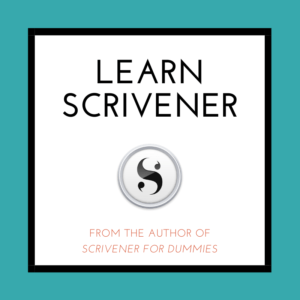Writing is a valuable skill. It allows us to communicate ideas, share stories, and connect with others. Many people believe that writing is an innate talent, something you’re either born with or not. But this is a myth. Writing is a skill that can be learned by anyone with dedication and practice. This blog post will explore why this belief is true and provide practical tips on how to develop your writing skills.

The Myth of the “Born Writer”
Many people hold the pervasive belief that great writers are born, not made. We frequently hear about renowned authors who began writing at a young age and seemingly effortlessly produced brilliant work.
This fosters the misconception that writing talent is an innate gift. However, this overlooks the undeniable truth of the relentless hard work and unwavering dedication that all great writers invest in honing their craft.
Examples of famous writers: Many famous writers struggled in their early years. J.K. Rowling faced numerous rejections before “Harry Potter” was published. Stephen King had his first novel, “Carrie,” rejected by dozens of publishers. These examples show that persistence and practice are crucial to writing success.

The Importance of Practice
Writing, like any other skill, definitely improves with practice. The more you write, the better you become. Practice helps you develop your unique voice, refine your style, and master your grammar and vocabulary. It also empowers you to overcome writer’s block and boosts your confidence in your abilities.
Daily Writing Habits: To become a better writer, it’s essential to make writing a daily habit. Schedule a specific time each day to write, even if it’s only for a few minutes. With consistency, this habit will undoubtedly enhance your writing skills.

Breaking Down the Process
To improve your writing, it’s essential to approach the writing process in a systematic way. Breaking down the process into manageable steps can make writing less overwhelming and allow you to concentrate on specific areas for enhancement.
1. Pre-Writing: Before delving into the actual writing, take some time to brainstorm ideas and organize your thoughts. Developing an outline can provide a roadmap for your writing and ensure that your ideas are presented in a logical sequence.
2. Drafting: When you start drafting, focus on getting your initial ideas down on paper without worrying too much about perfection. The primary objective at this stage is to capture your thoughts and ideas for later refinement.
3. Revising: The revision stage is where you can fine-tune your writing. Review your draft critically, seeking opportunities to enhance clarity, coherence, and brevity. Don’t shy away from making substantial changes if necessary to improve the overall quality of your writing.
4. Editing: Editing involves paying attention to grammar, punctuation, and style. It is crucial to polish your writing to ensure it is free of errors and maintains a professional tone.
5. Proofreading: The final step is proofreading, during which you carefully scrutinize your writing for any lingering errors or typos. This thorough review ensures that your writing is error-free and ready for presentation.

Seeking Feedback
One of the most valuable aspects of the writing process is the feedback you receive. It provides you with a fresh perspective on your work and helps you pinpoint areas that need improvement.
Consider joining a writing group or teaming up with a writing buddy to share your work and receive constructive criticism. This kind of interaction can significantly enhance your growth as a writer.
You can also explore various online communities catering to writers, where you can share your work and solicit feedback. Websites like Wattpad, Scribophile, and Reddit’s writing subreddits are excellent starting points for engaging with a broader audience and receiving valuable input.

Reading Widely
A critical factor in improving as a writer is to cultivate the habit of reading extensively. By reading widely, you have the opportunity to immerse yourself in various writing styles, genres, and techniques.
Additionally, through reading, you can expand your vocabulary and gain insight into the elements of effective writing. It’s advisable to engage in active reading.
This involves taking notes, highlighting noteworthy passages, and analyzing the components that contribute to their effectiveness. By doing so, you can identify and learn from these techniques to enhance your own writing.

Setting Goals
Setting specific, achievable writing goals can help you stay motivated and track your progress. Your goals might include:
- Writing a certain number of words each day.
- Completing a short story by the end of the month.
- Submitting an article for publication.
Remember to use the SMART criteria when setting your writing goals. Ensure that your goals are Specific, Measurable, Achievable, Relevant, and Time-bound. As an example, rather than simply stating, “I want to write more,” you could set a SMART goal by saying, “I will write 500 words every day for the next month.”

Overcoming Common Challenges
As a writer, it’s natural to encounter various challenges that can impede your creative process. However, acknowledging and effectively dealing with these challenges is an integral part of your journey toward improvement.
1. Writer’s Block: This common obstacle can halt your progress. Overcoming writer’s block involves experimenting with different writing environments, taking short breaks to rejuvenate your mind, and exploring entirely new topics to ignite your creativity.
2. Self-Doubt: It’s not unusual for writers to experience self-doubt, but it doesn’t have to hinder your work. Instead of fixating on your insecurities, focus on your growth and recognize even the smallest victories as significant milestones in your journey.
3. Lack of Time: Finding time to write amidst a busy schedule is a real struggle for many writers. To combat this, consider allocating specific time slots for writing in your daily routine and treating this time as a non-negotiable commitment to your craft.

Using Writing Prompts
Looking for inspiration and a way to enhance your writing abilities? Writing prompts are an excellent tool to ignite your imagination and hone your writing prowess. By offering a launching pad, they can assist you in overcoming the intimidating blank page.
Examples of Writing Prompts:
– Write about a time you faced a difficult decision.
– Describe a place you’ve never been but would like to visit.
– Imagine you wake up with a superpower. What happens next?
Leveraging Technology
Technology can be a valuable tool for writers. Various apps and software can help you improve your writing, organize your ideas, and stay focused.
1. Grammarly: A popular tool for checking grammar, punctuation, and style. Check out Grammarly!
2. Scrivener: A writing software that helps you organize long documents, such as novels or research papers.
3. Hemingway Editor: An app that helps you simplify your writing and make it more readable.

Continuous Learning
As a writer, it’s important to recognize that writing is an ongoing journey of learning and growth. There are always new skills to acquire, whether it’s mastering a fresh writing technique, exploring a different genre, or gaining insights from fellow writers.
One effective way to enhance your writing abilities is to enroll in writing courses. Many reputable universities offer online courses tailored to various aspects of writing.
Additionally, platforms such as Coursera, Udemy, and MasterClass offer a wide range of writing classes taught by accomplished authors. These courses can provide valuable guidance and expertise to help you refine your craft.
Attending writing workshops is an excellent method to enhance your writing skills and build relationships with fellow writers.
These workshops provide valuable opportunities to receive constructive feedback on your work, network with other writers, and further develop your writing capabilities.

Embracing Rejection
Facing rejection as a writer is inevitable, but it’s crucial to remember that rejection does not equate to failure.
Instead, it presents an opportunity for personal and professional growth. It’s important to persist in submitting your work, understanding that each rejection inches you closer to acceptance.
In addition, if you receive feedback with a rejection, harness it as a means to enhance your writing. Constructive criticism can serve as a powerful catalyst for improvement and refinement of your craft.

Celebrating Small Wins
When it comes to making progress in writing, it’s important to recognize that it often happens in small steps. It’s crucial to acknowledge and celebrate these small victories to maintain motivation and a positive mindset.
Tracking your progress can be a great way to stay motivated.
Consider keeping a detailed journal of your writing milestones, such as completing a chapter, reaching a specific word count, or receiving positive feedback from readers or peers.
This can help you visualize how far you’ve come and provide encouragement to keep moving forward. Additionally, setting up a reward system for yourself can be an effective way to stay motivated and focused.
By establishing specific rewards for achieving your writing goals, such as treating yourself to something special or taking a break, you can create positive reinforcement for your accomplishments. This can help you stay motivated and maintain a sense of accomplishment as you progress in your writing journey.

Building a Writing Routine
Developing and maintaining a consistent writing routine is crucial for achieving long-term success as a writer. A routine helps instill discipline and ensures steady progress toward your writing goals.
First and foremost, it’s crucial to identify the time of day when you feel most productive and creative. For some people, this may be early in the morning, while for others, it might be late at night. Understanding your peak productivity hours can help you optimize your writing schedule.
In addition to finding your best time to write, it’s also beneficial to create a dedicated writing space. This space should be free from distractions and tailored to your specific needs as a writer. Having a designated writing area can help you focus and signal to your brain that it’s time to write, promoting a more productive and efficient writing session.
Writing for Different Purposes
1. Creative Writing: “Written works encompassing fiction, poetry, and creative non-fiction serve as a means of expressing imagination and sharing captivating narratives with others.”
2. Academic Writing: The process of academic writing involves organizing and presenting research findings and supporting arguments in a logical and structured manner. This form of writing is commonly utilized in essays, research papers, and dissertations to communicate information and analysis effectively.
3. Business Writing: The material covers various forms of written communication, such as emails, reports, and proposals. It emphasizes the importance of effectively conveying information in a professional setting through clear and concise language.
4. Content Writing: Creating content for blogs, websites, and social media is a multifaceted task that involves capturing the interest of the audience and frequently incorporates search engine optimization (SEO) strategies. This process aims to not only inform and entertain but also ensure visibility and discoverability in the digital landscape.

The Role of Reading in Writing
Remember that reading and writing are closely linked. By reading, you can observe various styles and techniques that you can incorporate into your own writing.
Read Widely: Exploring a diverse range of genres enhances your appreciation for various writing styles. Don’t confine yourself to just one genre.
Analyze What You Read: Pay close attention to the elements of the story that captivate you and the reasons behind it. Take a deep dive into the narrative structure, character complexities, and the dynamics of dialogue.

Developing Your Writing Voice
Your writing voice is what sets your work apart. It’s your personality and style shining through your words.
Experiment: Discover your natural writing style by experimenting with various tones and styles.
Be Authentic: Write from your heart and in a way that reflects your true self. When you’re authentic, your words will deeply connect with your readers.

Setting Long-Term Goals
In addition to short-term goals, setting long-term goals helps you stay focused on your ultimate writing aspirations.
Visualize Your Success: As we move forward, it’s important to consider the path we’d like to take in the next five or ten years. What specific type of writer do you aspire to be during that time frame?
Plan Your Path: When you have long-term goals, it’s helpful to break them down into smaller, manageable steps. By doing this, you can make the goals feel less overwhelming and more achievable.
Conclusion,
Writing is a skill that anyone can learn with dedication and practice. It’s not about innate talent but about hard work, consistency, and a willingness to learn and grow.
By setting goals, practicing regularly, seeking feedback, and continuously learning, you can improve your writing skills and achieve your writing dreams.
Remember, every great writer starts as a beginner. With persistence and dedication, you can become the writer you aspire to be.

As a wordsmith seeking to enhance your writing prowess, you’ll find many remarkable writing tools and apps at your disposal. Let’s explore some of the best options:
- Scrivener: A beloved companion for authors, Scrivener offers a treasure trove of features. It helps you track plot threads, store character notes, structure your work, and—most importantly—get serious writing done. While it’s not free, the investment is worth it for serious writers.
- Ulysses: If distraction-free writing is your goal, Ulysses is your muse. Its minimalist interface allows you to focus solely on your words. Plus, it syncs seamlessly across devices, ensuring your creativity flows wherever you are.
- iA Writer: Ideal for online writing (think Medium or WordPress), iA Writer combines simplicity with elegance. Its clean design encourages a flow state, making it a favorite among bloggers and content creators.
- Plottr: For those who thrive on outlining, Plottr is a gem. It helps you map out your novel, organize scenes, and keep your plot threads in check. Whether you’re a pantser or a plotter, Plottr has your back.
- Reedsy Book Editor: If you’re working on a book, Reedsy’s online editor is a fantastic choice. It’s free, collaborative, and offers a straightforward interface for drafting and editing your masterpiece.
- yWriter: Scene-based writers rejoice! yWriter lets you organize your novel into scenes, track characters, and maintain a bird’s-eye view of your work. It’s a powerful tool for structuring your narrative.

Remember, the best writing app is the one that aligns with your unique needs and writing style. Whether you’re crafting screenplays, novels, or blog posts, these tools will be your trusty companions on your literary journey. Happy writing! 📝✨
Just Pure Opportunity!
Kevin
I hope you found this blog post helpful. If you did, please share it with your friends and leave a comment below. And if you want to learn more about writing, check out my other blog posts on 3D printing, affiliate marketing, and writing. Thanks for reading! 😊
Make them laugh, make them think, but above all, make them feel!

